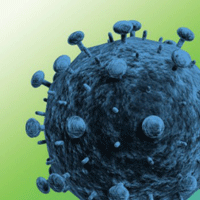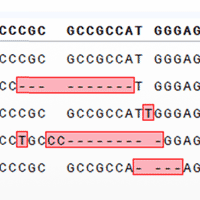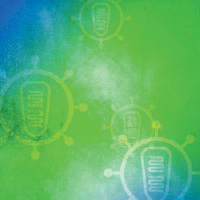30-minute lentiviral transduction without polybrene

Lenti-X Accelerator is a magnetic bead-based technology designed to accelerate lentiviral transduction experiments. Traditional lentiviral transductions require overnight incubation of your cells and virus with Polybrene, but Lenti-X Accelerator allows you to complete this process in 30 minutes and avoids using Polybrene altogether. Charged magnetic beads bind to virus particles from lentiviral packaging supernatant and are pulled into contact with your cells in the presence of a magnetic field.
Lenti-X Accelerator is a magnetic bead-based technology designed to accelerate lentiviral transduction experiments. Traditional lentiviral transductions require overnight incubation of your cells and virus with Polybrene, but Lenti-X Accelerator allows you to complete this process in 30 minutes and avoids using Polybrene altogether. Charged magnetic beads bind to virus particles from lentiviral packaging supernatant and are pulled into contact with your cells in the presence of a magnetic field.
Lenti-X Accelerator is excellent for transducing lentivirus and MMLV retrovirus, including MSCV retrovirus preparations. It is ideal for cell types that are sensitive to Polybrene. The Lenti-X Accelerator reagent (Cat. # 631256 & 631257) and Magnetic Separator for Cell Culture (Cat. # 631255) are available separately, or together in the Lenti-X Accelerator Starter Kit (Cat. # 631254). Low-titer lentiviral samples may be concentrated with Lenti-X Concentrator prior to transduction.
Do I really need to use the magnetic separator?
Lenti-X Accelerator beads are large enough to carry out transduction by gravity alone without using a magnet, so you can evaluate transduction efficiency without using a magnetic separator. Transduction is still very rapid (15 min) compared to Polybrene (overnight), but the magnetic separator reduces the transduction time to 5 min and provides 10% higher transduction efficiencies. The magnetic separator also allows easy removal of the beads from your transduced plate—i.e., after you trypsinize to separate your cells, you can briefly expose the cells to the magnet before aspirating them to another dish.
Overview
- Lentiviral transduction in only 30 min using magnetic beads
- Ideal for transducing Polybrene-sensitive cells
- Concentrate low-titer lentiviral samples with Lenti-X Concentrator before transduction
More Information
Applications
- Transduction of lentivirus and MMLV retrovirus, including MSCV retrovirus preparations
- Transducing Polybrene-sensitive cell types
Additional product information
Please see the product's Certificate of Analysis for information about storage conditions, product components, and technical specifications. Please see the Kit Components List to determine kit components. Certificates of Analysis and Kit Components Lists are located under the Documents tab.

Lentiviral product selection guide
Takara Bio offers a broad range of research tools for gene delivery using lentiviral vectors, including a selection of vector systems, packaging mixes, and titration kits. Use our selection guide for a brief description of the products and links to further information.
Lentiviral products guide Learning centerTakara Bio USA, Inc.
United States/Canada: +1.800.662.2566 • Asia Pacific: +1.650.919.7300 • Europe: +33.(0)1.3904.6880 • Japan: +81.(0)77.565.6999
FOR RESEARCH USE ONLY. NOT FOR USE IN DIAGNOSTIC PROCEDURES. © 2025 Takara Bio Inc. All Rights Reserved. All trademarks are the property of Takara Bio Inc. or its affiliate(s) in the U.S. and/or other countries or their respective owners. Certain trademarks may not be registered in all jurisdictions. Additional product, intellectual property, and restricted use information is available at takarabio.com.






